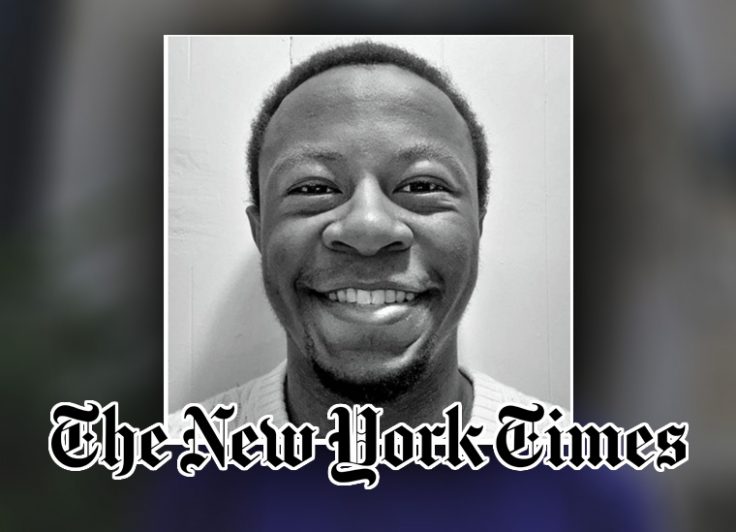The former Daily Northwestern editor who hid in his office to avoid taking questions from a Washington Free Beacon journalist is now a staff reporter at the New York Times.
The prominent media corporation announced Monday that Troy Closson, a member of the 2020 New York Times fellowship class, was being promoted to a full-time position on the paper's Metro desk.
Closson is a 2020 graduate of the Medill School of Journalism at Northwestern University, where he served as editor in chief of the student-run Daily Northwestern. Under Closson's leadership, the paper garnered national attention for a 2019 editorial apologizing to student activists who criticized its efforts to report the news.
The activists, who were protesting former attorney general Jeff Sessions's appearance on campus, were outraged that Daily journalists tweeted photos of the protest and further outraged when the journalists attempted to contact some of the protesters for comment using a campus directory.
The editorial, cosigned by Closson, agreed that the activists were right to be outraged at its reporters for doing basic journalism. It was exceedingly groveling in nature, even by the standards of a student-run newspaper.
"We recognize that we contributed to the harm students experienced, and we wanted to apologize for and address the mistakes that we made that night—along with how we plan to move forward," the editors wrote. "Ultimately, the Daily failed to consider our impact in our reporting surrounding Jeff Sessions. We know we hurt students that night, especially those who identify with marginalized groups."
The editors apologized to protesters who were "actively harmed" by the paper's coverage and explained that the "retraumatizing and invasive" photos of the protesters were taken down. They also agreed that its reporters had committed an "invasion of privacy" by contacting the protesters for comment and announced that the entire staff had since been educated as to "the correct way to reach out to students for stories," without elaborating on what that meant.
The editorial was widely condemned by professional journalists and even prompted a critical statement from Medill's dean, Charles Whitaker, who said the paper's reporting on the protests "was in no way beyond the bounds of fair, responsible journalism" and dismissed the concerns of activists claiming otherwise as "naïve" and "wrong-headed."
Closson responded to critics in a vaguely worded Twitter thread, explaining that the editors "stand by our reporting" while acknowledging that the apologetic editorial "addressed some legitimate areas of growth we noticed in our reporting, but also over-corrected in others."
Days after the editorial was published, a Free Beacon reporter attempted to do some journalism by asking Closson to clarify his position. When the reporter visited the Daily office, however, Closson's colleagues falsely stated that he wasn't there. After being spotted inside the paper's office several times throughout the day, Closson finally emerged to say he was "focusing on his own health" and declined to comment further.
In a follow-up email, Closson told the Free Beacon reporter—contrary to all available evidence—that he wasn't hiding in his office all day to avoid answering questions.
